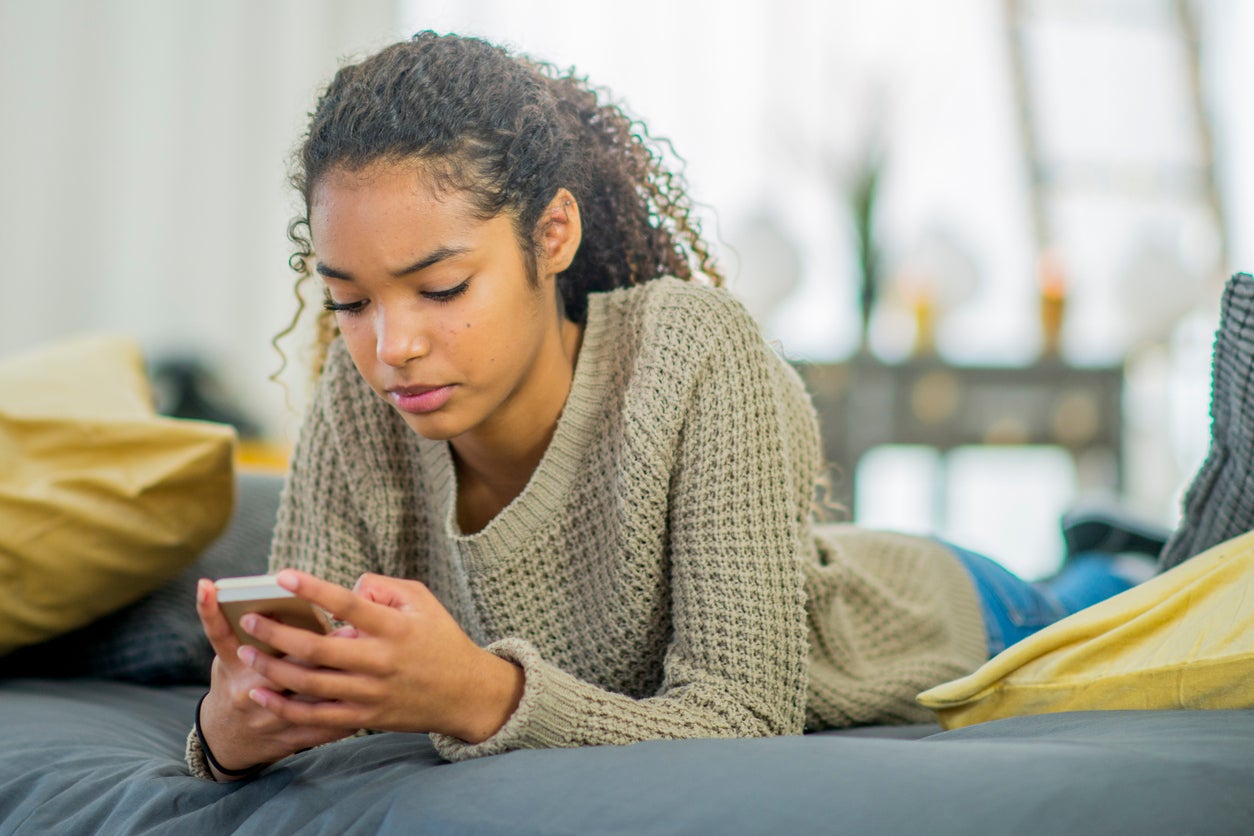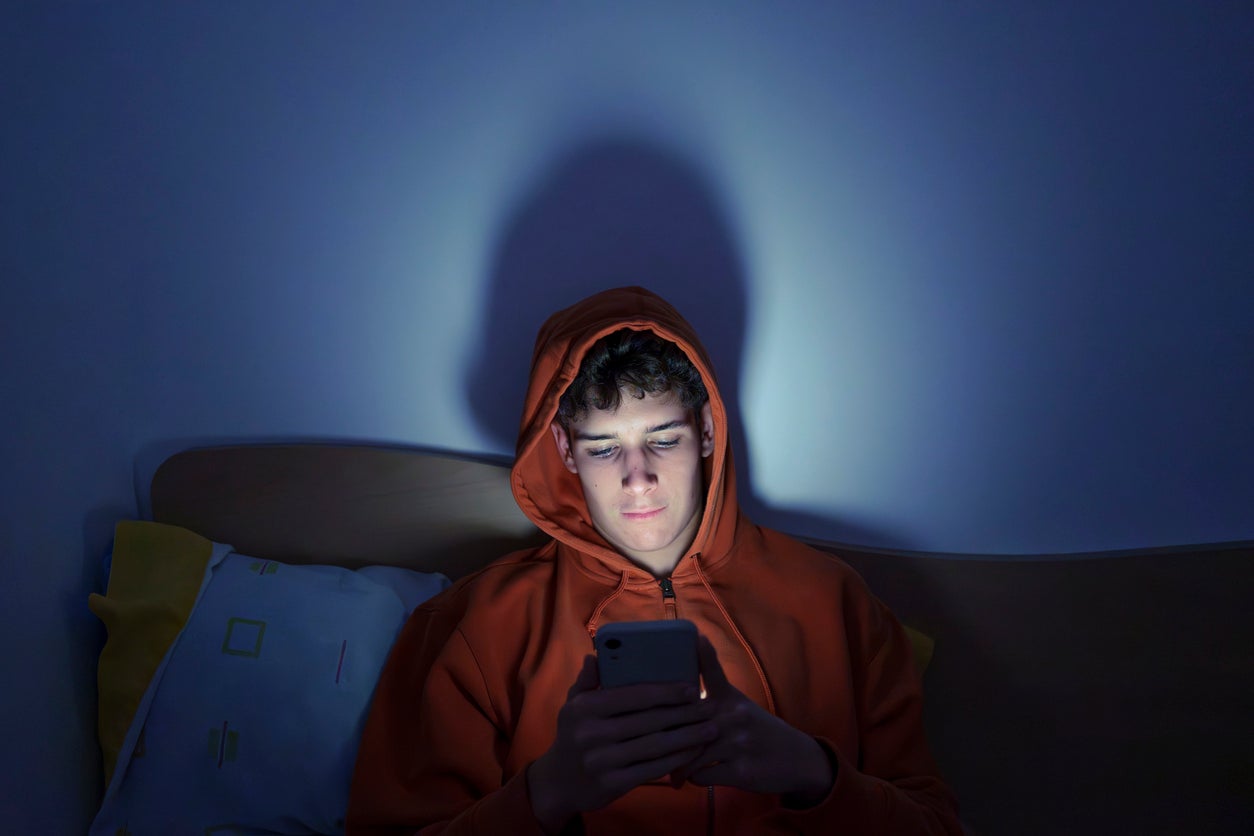ARTICLE AD BOX
A video of Morgan Freeman appears on my screen. “What you see is not real,” he says in his deep Tennessee drawl from a darkened room. “What if I were to tell you that I’m not even a human being?” It takes me a minute to adjust. Is Morgan doing OK? I notice he’s not blinking; his head’s not moving. Ah ha…it’s a deepfake.
I’m watching this clip as part of the UK’s first life-skills curriculum, which is being rolled out to thousands of Gen Z students in Greater Manchester. They will learn essential tools including empathy, time management, challenging prejudice, financial literacy, and spotting misinformation online. The Unesco-partnered non-profit Higher Health has launched the nine-module programme to address a gap in soft skills among those aged 16 to 25, with plans for a nationwide expansion across different education providers such as sixth form colleges, young offender institutions, apprenticeships hubs, and graduate employment settings (it aims to reach 10,000 young people by September).
While I’m not actually one of the participants (I’ve been given access to the materials for this article), I am part of its target age group, and I can completely see the benefits. The course has been launched at a time when there is public concern about the future of my generation and how we will adapt to the workplace, especially since Gen Z is expected to make up about 27 per cent of the UK’s workforce this year.
Our negative reputation often precedes us: we’re represented in the media as a lazy, anxious and workshy generation, more snowflake than the millennials. What’s more, employers seem to be bracing themselves for our apparent ineptness: the accountancy firm Forvis Mazars recently launched a social skills course to teach Gen Z lessons on “picking up the phone”, which included simulations of client meetings.
From my perspective, it feels as though there’s a growing moral panic surrounding my generation, as if we require reform or an overhaul. But are we really broken? So doomed that we need to roll out another curriculum, on top of our 14 years of compulsory school education, to ensure that we are compassionate, socially informed, and ready for the real adult world? Really so hopeless that we have to sit through hours of instruction on self-care?
It does seem to be a rite of passage that the “lazy” and “anxious” labels are levied at the youngest adults joining the workforce (just look at how millennials were gawped at not that long ago). Resorting to clichés about the younger generation, rather than trying to understand them better, is easy. But if we ignore the realities of the circumstances in which Gen Z has emerged into the world, then we will be looking away from a unique set of challenges that might explain why we’re perceived so abnormally.
Professor Sandeep Ranote, a leading child psychiatrist who worked on developing the curriculum alongside Higher Health, has seen how those born between 1997 and 2012 – known as Gen Z – have grown up in an unstable world that has left them lacking some key social skills. She has developed what she calls the “five Cs” (Covid-19, climate change, cost-of-living, cyberspace and conflict) to represent the unique circumstances that the generation has lived through. “I’m calling the programme pre-prevention, because it’s giving young people a broader toolkit and skills for life at a really important transition time, between the ages of 16 and 25, since our brains are still developing until at least the age of 25,” she says.
Higher Health’s research has surveyed where Gen Z are struggling to adapt to the workplace, and communication is at the top of that list. “What we’re seeing is young people struggling with communication skills, over the phone or face-to-face, managing their own emotions, and managing relationships between peers and superiors – whatever workplace you’re in, if it’s retail, health or finance.”
The nine modules, which cover topics from gender equality to staying safe, money management and climate understanding, will be delivered through a mixture of peer-to-peer and online learning, with digital forums available for collective reflection. The course, while aiming to equip young people with skills for the working world, doesn’t shy away from mental health, either, with modules built around meditation and mindfulness.
One scenario in the empathy module asks you to reflect on your reaction when a friend announces that their partner has broken up with them. It feels like ample training for 16-year-olds who publicise their breakups on social media in real time. I wonder whether some of the older participants might find this sort of training rudimentary, though. Another role-play situation asks you to show how you’d confront a friend who was sharing inappropriate pictures, which is something I know my teenage Facebook-obsessed self could have benefited from. Or there’s another module that teaches you how to spot a deepfake video (the advice is to watch out for unnatural eye movement, a missing background, and lip movements). A lot of this is surely helpful, but I wonder whether it boils down to common sense.

You could argue that the younger generation are simply less resilient than their predecessors, but Gen Z has grown up in a very different world. A report released by the Resolution Foundation think tank in 2024 found that those in their twenties were more likely to be out of work because of mental health problems (not to watch Netflix, as the tabloid media might have you believe). And as pointed out in Jonathan Haidt’s bestselling book The Anxious Generation, suicide and self-harm rates are rocketing among young people, particularly girls aged 10 to 14, with the cause attributed to social media and mobile phones, which he argues are leaving children with fragmented skills, lessened social interaction and sleep deprivation.
Ranote has seen first-hand how mental health has worsened among young people since she began working as a consultant in 2005 (at a time when social media was in its infancy). “In 2005, we were quoting figures like ‘one in 10 young people has a diagnosable mental health condition, but only 25 per cent are getting access to the right services and the right support’. By the time we hit 2015, it was one in eight. It’s now one in five.” Ranote says this is all about considering the context. “It’s a very different landscape in terms of how young people live, learn and love, and how they communicate.”
Becca Hutson, the editorial director of The News Movement, a Gen Z-led media company that researches youth culture, believes that Gen Z are being “treated as if they’re from a different planet” when they are simply misunderstood. “I think that the narrative around them being workshy and socially inept is frustrating, because they’ve inherited some pretty difficult circumstances from the rest of us, and they’re just trying to figure it out, like we all were. There’s been a pandemic, a climate crisis, global conflict and the cost of living crisis – and they’ve been shaped by that.”
Gen Z-ers I speak to are aware of how this awful cocktail of social and cultural upheaval has affected their experiences. One of them is Dhruwi Mistry, a 22-year-old master’s student in climate change at the University of Manchester, who has completed modules in the Higher Health curriculum and advised on the pilot modules as co-creator. She says that the immediate concerns facing her cohort are employability, climate change, and mental health in the post-Covid era. Mistry has noticed how some of her peers have become more isolated since the pandemic, and that communication has broken down. “Covid definitely changed a lot of people’s confidence. I remember when I used to do Teams meetings for lectures and no one would put their camera on,” she says.
She noticed that her cousin, who she says is a typically social person, became increasingly withdrawn during the pandemic. “I saw a real big change in her mental health in the space of six months,” says Mistry. “I almost lost that connection with her, since she lost the confidence to talk about how she was feeling.” The soft skills curriculum, particularly its mental health module, has helped Mistry to deal with her own anxiety that she experienced in her second year. “I had quite a lot of issues with anxiety, especially after Covid when giving presentations. I used to freak out; I still do sometimes. I found the course helped me address my anxiety and learn how to manage it, recognise it, and understand how everyone’s different.”

Georgia Atkins, 19, who is studying English and film at Manchester Metropolitan University, also took part in the programme as a participant and co-creator. She found the digital literacy module most useful, since it taught her how to assess the reliability of different sources on social media and look out for misinformation (like the Morgan Freeman video). She found the task of hypothetically confronting a friend sharing inappropriate images to be extremely helpful. “You had to answer how you would confront them and deal with the situation,” she says. “It’s great, because it starts a conversation and you can talk to your friends. No one knows what to do in those situations, but I found the course guided me through it.”
Tom Bolton, 17, is currently studying for a fashion diploma at college. He feels as though his peers are most concerned about not being able to get jobs. “I personally don’t think I’ve been equipped with the best skills to apply for them. I didn’t get taught how to do a CV in school; there’s been more of it in college, but it’s still not enough.” Another worry he has is financial literacy, which he says he also didn’t learn in school, even in PSHE. The Higher Health course, then, could fill gaps.
Bolton – who was in his first year of secondary school when lockdown hit – has noticed how his peers have become more withdrawn while communicating. “People just speak online rather than meeting up, and the lack of socialisation worries me. I get worried that my generation will stop doing things, stop going to festivals, stop socialising... I love to be outside, but lots of people just want to stay indoors.”
Atkins says she can see how social media has harmed her generation, especially as they were the guinea pigs for it. “Social media excludes you from stuff, and I think it makes socialisation so much harder because there’s this whole other layer of ‘I have to do this now to fit in’,” she says. “Before, you could go home from school and get respite if you were being bullied or socially excluded – but now there’s no escape. You’re seeing what people are doing all of the time through this perfect lens.”
In some ways, it feels as though my generation has had to constantly adapt to a vastly changing environment, while onlookers have rolled their eyes at us, seeing us as a bunch of phone addicts. I ask Ranote whether she thinks that Gen Z has been failed by the older generation in some way. “Social and cultural change has happened incredibly quickly in such a short time, and I don’t think we, as parents or professionals, have been prepared,” she says. “The globe has failed to prepare and provide the tools for this generation, but we’re starting to have much better conversations. And that’s why programmes like this have a real place in changing that narrative.”
I love to be outside, but lots of people just want to stay indoors
Tom Bolton, 17
Through working with hundreds of young people and having three children herself, Ranote has noticed that young adults today have unique strengths, too. “Young adults challenge you in a way that I do not believe my generation ever challenged their elders. I’m 53 this year, and we never did that ... I am really heartened by the fact that I see a generation with a voice.” She adds that we are much more politically aware compared with older generations, having more “informed conversations” than she was at our age.
Hutson agrees that Gen Z’s strengths should be celebrated and uplifted. “Young people have a staggering level of media literacy – they understand the online world in a way that other generations don’t. I think they’ve got much clearer ideas around work-life balance and protecting their time. I think millennials, who have that eager-to-please mentality in the workplace, could all learn something from Gen Z.”
In fact, she thinks the Higher Health course could be beneficial to all sorts of people. There’s a section on how to spot everyday scams, which can fool anyone, even the tech-savvy. “I’m sure you’ve got family members who have sent you completely mad things on WhatsApp. And what on earth goes on Facebook? I think we could all benefit from it.”
A spokesperson for Higher Health also tells me that while the programme is aimed at those aged 16 to 25, a person in their forties took part in the pilot modules and found it to be a “fantastic” experience. It seems that even those with a fully developed prefrontal cortex could benefit from some soft skills training (albeit not the squishy handholding common-sense training). And by the time Gen Alpha become young adults, perhaps they will need a course like this, one that’s adapted to the new set of challenges that the modern world will inevitably throw at us in 10 years’ time. Gen Z may need a rewire. But we’re not the only ones.









 English (US) ·
English (US) ·